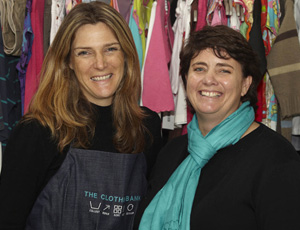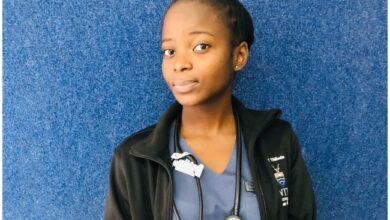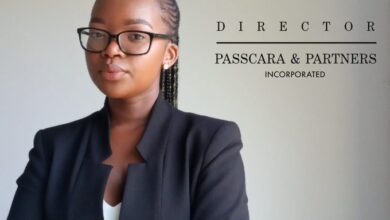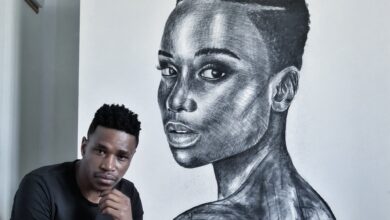The Clothing Bank – ‘Empowering unemployed mothers through enterprise development’

Imagine the major retailers of South Africa which decide to give their excess stock to a social enterprise which use them to help unemployed women to earn an income… This is exactly what The Clothing Bank is achieving since 2006! Their 24 months programme has a big impact of a lot of women’s lives: self confidence, social and financial independence, better education of their children… Tracey Gilmore, co-founder of this organization, gives us the keys to understand its model.

Tracey Gilmore, co-founder of The Clothing Bank
SparkTour Africa: Why The Clothing bank was created?
Tracey Gilmore, co-founder of The Clothing Bank: We founded The Clothing Bank to address the problem of unemployment and the lack of opportunities that women from the low-income communities have in South Africa. For them The Clothing Bank is a way to begin to earn an income, educate their children, and take care of their healthcare needs.
‘We founded The Clothing Bank to address the problem of unemployment and the lack of opportunities that women from the low-income communities have in South Africa.’
How does it work today?
We build relationships with the major retailers, and they donate all their excess stock to us. We take clothing, bedding, cosmetics… anything! We have 40 000 items a month which come through our system. The clothing comes to our warehouse in Observatory, Cape Town. We sort it, code it, and we put it in a warehouse ready for dispatch. The clothing is the practical application of a 24 months programme, it allows women to experiment what they are learning in classroom. We try to build responsible independent women who are able to respond appropriately to life challenges and life opportunities. Our whole ecosystem is around developing financial and social independence. So, 70% of the items we receive are used in our enterprise development programme, and 30% goes to charity.
‘The clothing is the practical application of a 24 months programme, it allows women to experiment what they are learning in classroom.’
What is the business model?
We sell the clothing we receive to the women who are in the programme. As a result, in Cape Town, we are 85% self founded, but it is a process that takes a while to get there. You need a critical mass of 200 women and it takes you two years to achieve this size.

What are the results of The Clothing Bank?
We currently have 250 women trading in our development programme, and we have trained 450 women the last four years. Collectively they have generated an income of 14,5 million rand, and that is money that is staying in the community.
Who are the women taking part in the programme?
We are focused on 30-40 years old women, and a majority of them have not matriculate. At the age of 15 they had to go out and find a work to help their family. A lot of our women have had early pregnancies. They have not lived necessarily in households where their parents are business owners, so they have everything to learn! It is a lot about self confidence, about creating ‘I can moments’ during the formation we give them. The most successful women are the one that are proactive, that have a sense of self and that feel connected to the world around them.
‘The most successful women are the one that are proactive, that have a sense of self and that feel connected to the world around them.’
Could you give three words to define the spirit of The Clothing Bank?
Empowering, impact, independence.
What was the biggest difficulty since the creation?
It is hard to fine! This is a successful collaboration of what can happen when government, corporate and NGOs get together. The challenges are like any other businesses, the logistics for example. It is also being patient, as we want to do a lot. We have to do well what we do before starting to replicate. We have to slowdown, to limit ourselves.
How do you see The Clothing Bank in 10 years?
I want to see a lot of satellite branches across South Africa, which is a unique country because we have first world systems operating in a third-world environment. The Clothing Bank is an urban model because of the logistics. Perhaps it could also work in South America and in Europe, particularly with unemployed youth.
‘The Clothing Bank is an urban model.’
Today, a lot of young South Africans want to embark on an entrepreneurial adventure to help society. Do you have a piece of advice for them?
Just go for it! You have nothing to lose, so work with your networks, go to meet people that can help you because everybody needs connections. If you are at the right place at the right time with a great idea, work on the business model to make sure that it is sustainable. If it does make sense, you will get people to come behind you.




